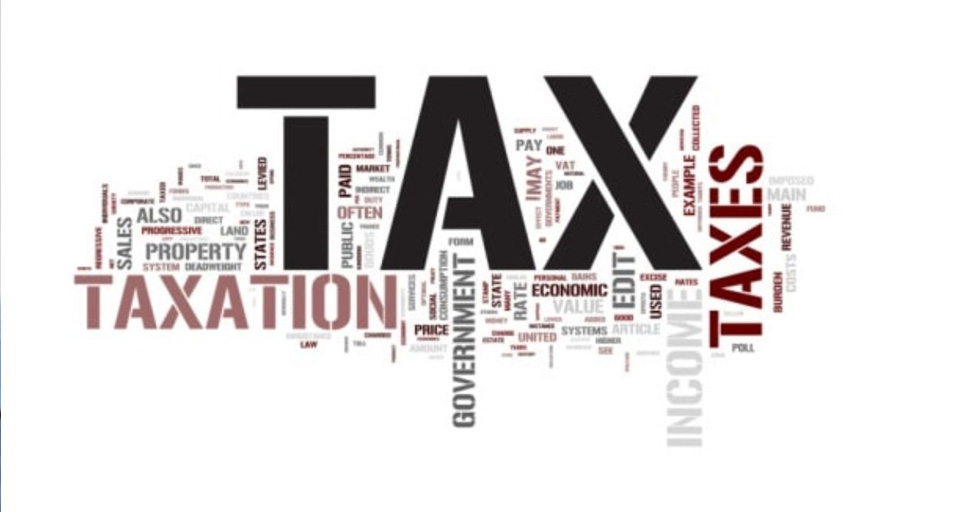Taxation – The Tax Code of the Republic of Azerbaijan is the main legislative act regulating taxation in the country. There are three different tax regimes: i) statutory tax regime; and ii) special tax regimes which are accordingly a) Production Sharing Agreements (PSAs) existent in the oil & gas sector, and b) Host Government Agreements (HGAs) regulating the agreements exclusively dealing with Baku-Tbilisi-Ceyhan and South Caucasus pipelines. The statutory tax regime applies to all legal entities with the exception of those that are governed by a PSA or HGA.
There are several types of taxes payable when conducting business in Azerbaijan:
Corporate Income Tax (CIT) – Both resident and non-resident entities (through their permanent establishment, such as representative or branch offices) are subject to CIT (profit tax) in Azerbaijan. Foreign legal entities who are present in Azerbaijan for more than 182 cumulative days during a calendar year shall establish a representative or branch office in Azerbaijan. Both local legal entities and the branches or representative offices of foreign legal entities in Azerbaijan are taxed on profit, which is determined as gross income from business activities minus deductible expenses, at a flat rate of 20%. The branches and representative offices are only taxed on the gross income from business activities conducted in the territory of Azerbaijan minus deductible expenses, while other legal entities are taxed on their worldwide income. In addition to CIT paid by a permanent establishment of a foreign legal entity, it will also be subject to branch profit tax at the rate of 10% for each amount repatriated by such permanent establishment from its net profit. CIT for non-resident entities which do not have their permanent establishment in Azerbaijan is taxed from their gross profit without deductions for expenses at the rate of 10% (“Withholding tax”).
The law sets a number of tax exemptions for the specific types of businesses. Since January 2013, Tax Code established few concessions for the residents of the industrial and technological parks by exempting them from profit tax for the period of 7 years starting from the registration as a resident of the industrial and technological park. According to the recent amendments to the Tax Code which are effective from the 1st of January 2019, new categories of entrepreneurs are specified. The law provides tax exemptions for income, profit and property taxes including for salaries to reduce tax duties of businesses and introduces reduced and unified simplified tax while excluding simplified tax for certain category of entrepreneurs. The new categories of entrepreneurs are the micro and small entrepreneurs. Basically, 75% of income and profit of micro entrepreneurs are exempt from tax as well as they are exempt from property tax and allowed apply 2 coefficients for amortization. As per the new amendments, micro entrepreneurs are sole entrepreneurs and legal entities (i) having medium annual employees between 1- 10 people and (ii) annual income not more than AZN 200,000. Small entrepreneurs are sole entrepreneurs and legal entities (i) having employees between 11-50 people and (ii) annual income between AZN 200,000 – 3 mln. In addition to micro and small entrepreneurs, startups are also exempt from income and profit tax for three years from the date of “Startup” certificate.
Unless otherwise specified in the double taxation treaties which Azerbaijan is a party to, foreign legal entities with no permanent presence in Azerbaijan are subject to the withholding tax on their following income from Azerbaijani sources:
Dividends – 10% ; Interest – 10% ; Rent and royalties – 14%; Telecommunication and transport services – 6%; Risk insurance and re-insurance fees – 4%; Income received from performing works and rendering services – 10%; and Other income – 10%.
Simplified tax – legal entities or persons with annual turnover not exceeding AZN 200,000 can be registered as a simplified taxpayer. Pursuant to the new changes to the Tax Code, simplified tax rate is reduced to 2% of the gross income, and the entrepreneurs who does not render services and/or sell goods to the public but to the businesses (except transportation businesses), production businesses having more than 10 employees, wholesalers, businesses requiring licenses (except building construction and businesses providing services on compulsory insurance) are not eligible for the simplified tax anymore. The entrepreneurs who does not fall under the simplified taxpayer’s category, though having the same amount of income as simplified taxpayers will now pay 20 percent income tax. Nevertheless, they will pay taxes from 25 percent of income after deducting allowable costs.
Value Added Tax (VAT) – supply/import of goods and the provision of services in Azerbaijan are subject to VAT at the rate of 18% for each taxable operation. Legal entities and individuals with taxable transactions exceeding AZN 200,000 within a consecutive 12 month period shall register as VAT payers. Other companies carrying out business activities in Azerbaijan may voluntarily register. Only registered VAT payers may charge VAT or claim a credit for the VAT contribution. All VAT tax payers shall issue electronic VAT invoices in Automated Tax Information System.
Transfer Pricing – The rules on transfer pricing are applicable to the related party transactions which exceed AZN 500,000 within a calendar year. These rules apply to the transactions concluded between following persons: (i) resident of Azerbaijan and non-resident in a related party relationship; (ii) permanent establishment of non-resident in Azerbaijan and that non-resident or its any representative office, branch office or other unit located in other countries; (iii) resident of the Azerbaijan and (or) permanent establishment of non-resident in Azerbaijan and legal entities incorporated in countries with favorable tax regimes. Any of the above persons must submit a certificate in a form determined by the Ministry of Taxes regarding the transaction exceeding AZN 500,000 annually no later than 31 March following the reporting year.
Administrative penalties may be applied for noncompliance with tax legislation which vary from 50% up to 100% of the amount of taxes due.
Production Sharing Agreements (PSAs) – The Tax Code also recognizes the special tax regimes applicable to contracting and subcontracting parties in oil and gas production sharing agreements (“PSAs”) which provide for lower withholding tax rates (around 5% to 8%), exemption from VAT and customs duties, and simplified reporting and accounting procedures.
Other taxes: Property tax – Companies are levied with property tax at the rate of 1% on average annual value of fixed assets. Non-residents with permanent establishment (PE) in Azerbaijan are also subject to property tax on the average annual value of fixed assets connected with the PE.
Land tax – Except for agricultural lands, a land tax is imposed on legal entities or individuals owning or using land plots, the rate varying between 0.1-20 AZN, which depends on the purpose of use and location of the land.
Production of excisable goods in and/or import of those goods to Azerbaijan are subject to excise tax.
Legal entities and individuals involved in extracting mineral in Azerbaijan shall pay mining tax at rates from 3% to 26% of its total wholesale price.
All individuals producing or importing petrol, diesel and liquefied gas in Azerbaijan are subject to road tax. Rates for the road tax vary depending on vehicle engine, number of axles, weight carried and how long the vehicle is supposed to be in the country.
Employment taxes and social contributions – Personal Income Tax is exempted for the salaries up to AZN 8,000 and any amount exceeding this threshold will be taxed at the rate of 14%.








